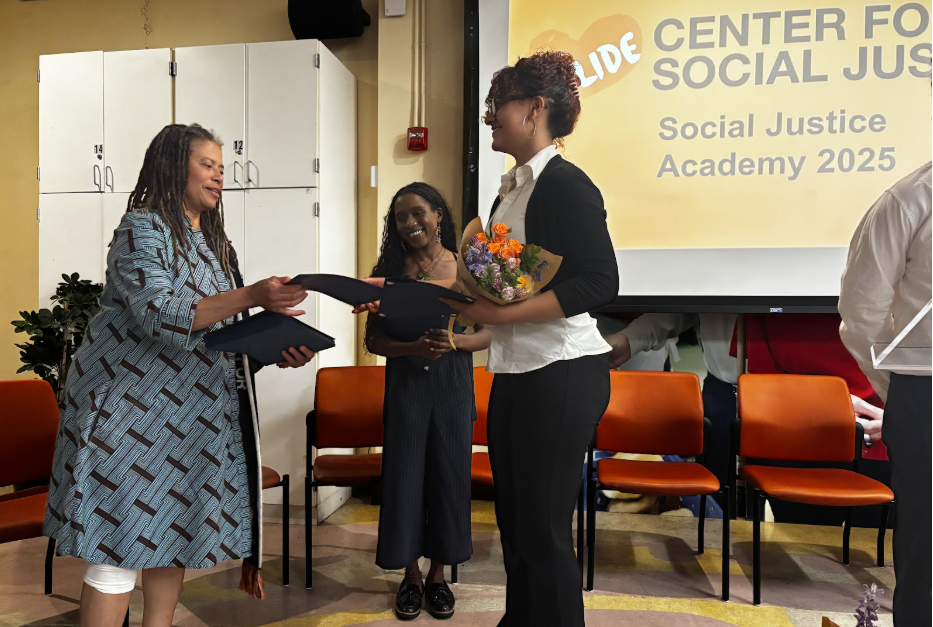
The graduation ceremony for GLIDE’s Social Justice Academy on June 26th was both triumphant and bittersweet. Triumphant, because of all the truly remarkable things our cohort accomplished– and bittersweet because the funding for our Social Justice Academy was cut by the city, and there will not be another cohort unless we find a way to renew funding.
The Freedom Hall was packed for the graduation ceremonies, and every person who attended could receive a copy of the group’s final project: a report for the city on what was missing from the city’s current response to substance use– and how to address the gaps, based on the lived experience of substance users.
The graduation was a joyous occasion, full of poetry, song, and poignant storytelling.
Here is how the conclusion of the graduate’s report on substance use reads:
***
Substance use services in San Francisco are doing critical work—helping people stay alive and supporting them on their individual paths to recovery. However, the current system does not have the capacity to meet the scale of need. Awareness of existing services is inconsistent, and many people face confusion, stigma, and logistical barriers when trying to access support.
One of the most significant systemic challenges is the lack of deeply affordable housing. Widespread housing instability undermines recovery efforts and makes it harder for people to engage with available services. To address these issues, several promising strategies have been proposed. These include:
- Wellness hubs to centralize and simplify access to currently fragmented services;
- Peer-led advisory councils to ensure that people with lived experience have real power in shaping
- programs and holding systems accountable;
- Expansion of cultural competency and anti-discrimination training to improve the quality and equity of care.
- Increasing the visibility and availability of support groups.
- Education about life-saving treatment options and clearer processes for accessing them.
- Emphasizing the importance of preventative care.
With bold, coordinated action and a commitment to centering the voices of those most affected, San Francisco has the opportunity to create a more compassionate, effective, and inclusive system of care.
***
To reach these conclusions, our Social Justice Academy graduate surveyed community members who currently or formerly had engaged with city services for substance users, 53 people in all. The graduates also brought extensive lived experience of their own to the table.
GLIDE is grieved by the decision to cut Social Justice Academy funding, but we hope that city leaders take advantage of their past investment in our academy, by heeding this research and these policy recommendations. We wish our graduates luck in their future social justice endeavors!
